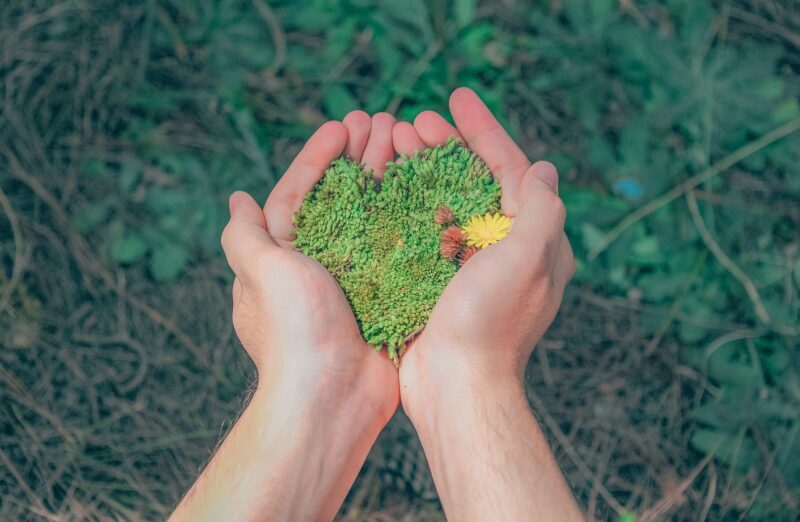The church has often been criticized of not being on the ball in terms of ecology and the safeguard of our planet. Traditionally, environmentalists were viewed as focusing too much on worldly matters, disregarding the ultimate importance of eternity.
Yet, this has been changing, especially in light of Pope Francis’ encyclical Laudato Si. Taking care of this great gift we get to call ‘home’ is a duty of each and every Catholic and is becoming an ever more pressing issue as we witness the devastating effects of our anthropogenic activities.
Last November, in tandem with the COP26, the European Laudato Si Alliance (ELSiA), organised the international workshop of ‘Spirituality and Ecology after Laudato Si” to reflect on the Pope’s encyclical and translate it into actionable measures. With the quaint village of Taize’ acting as a backdrop, we had the opportunity to slow down and focus on the realities of our suffering earth and on our role to start curing it back to life.
We looked at the alarming forecasts published recently by the IPCC, indicating that climate change is happening more rapidly and drastically than anticipated. Over the coming years we are to expect greater losses in landscape and biodiversity, extreme weather events such as heatwaves and floods, as well as expanding unliveable regions as a result of sea level rises and/or extreme temperatures. People will lose their land, home and enterprises, leading to mass migration and the ensuing political pressures, as entire populations get displaced.
The vulnerable and the poor will be the first ones who will bear the biggest brunt, having no means to ‘buy time’ or make contingency plans for survival. We must realise that when looking at ecological emergencies we need to “hear both the cry of the earth and the cry of the poor” (LS 49). Yet, climate change does not discriminate by ‘net worth’. Ultimately everyone will be impacted.
As shown by the great impetus globally in terms of climate action, one does not have to be Catholic nor as a matter of fact spiritual, to feel inclined to do something. In truth it is a primordial instinct of mere self-preservation. So, what role do faith and spirituality play in all of this?
The facts and figures are overwhelming. Pairing this with the fact that international commitments seem too slow at best and totally unambitious at worst, one might easily feel helpless and discouraged to take action. Yet, as Catholics are invited to humble ourselves in front of our helplessness and put our hope in something bigger, which goes beyond success. Martin Buber says, “Success is not a name of God”. Faith gives us a deep-seated hope that our actions must go over and above the possible outcome.
Spirituality also provides us with radical and alternative solutions to these global problems. The business community and society at large are grappling with the need for solutions. Yet, what we are frequently witnessing is the repackaging and greening of the old profit driven business model. Indeed, the same business model which has brought us in this exact place of overexploitation and abuse of resources, the world and the voiceless. In 2021, we are still trying to convince our businesses to green their operations by wooing them with ‘decreased costs’, ‘greater profit margins’, ‘increased competitiveness’ and greater ‘yields per share’. We continue repeating the same narrative, only now we are using big green lettering.
But what if saving our planet entailed long-term financial costs? What if it meant producing less and not simply different? What if we would need to consume less, not just greener products? Would the world still be so vociferous about such change?
I remain incredulous at the fact that despite all the scientific studies and the actual effects we are already experiencing, we still require a profit motive to spur us to do what is right. Especially knowing that if we persist with our current business models, we will simply be left with no world in which to enjoy these profits at all.
Our spirituality, as expressed through Laudato Si, proposes a different kind of answer. One which requires a deep conversion from the consumerist society we are embedded in and which encourages a simpler way of life. This might seem to be a tall order, especially in a world whereby our success is gauged by income, profits and how much we are able to consume. But dire times demand dire solutions, and we must recognise that saving our planet will require a degree of change, which at first will always be uncomfortable.
Pope Francis invites us to rediscover the beauty of simplicity. Of the small things in life, which might seem insignificant in the commodified world we live in but in which true happiness lies. “Such sobriety, when lived freely and consciously, is liberating. It is not a lesser life or one lived with less intensity. On the contrary, it is a way of living life to the full” (LS223).
We must unlearn what we know about happiness and relearn that the foundation of true joy is sharing rather than possessing. Sharing a simple meal with strangers, a deep and thoughtful conversation with loved ones, our time with people who are alone. By rekindling this love for simplicity, we will be able to move away from consumption and embark on a healing journey for our common home.
Maria Giulia Pace



